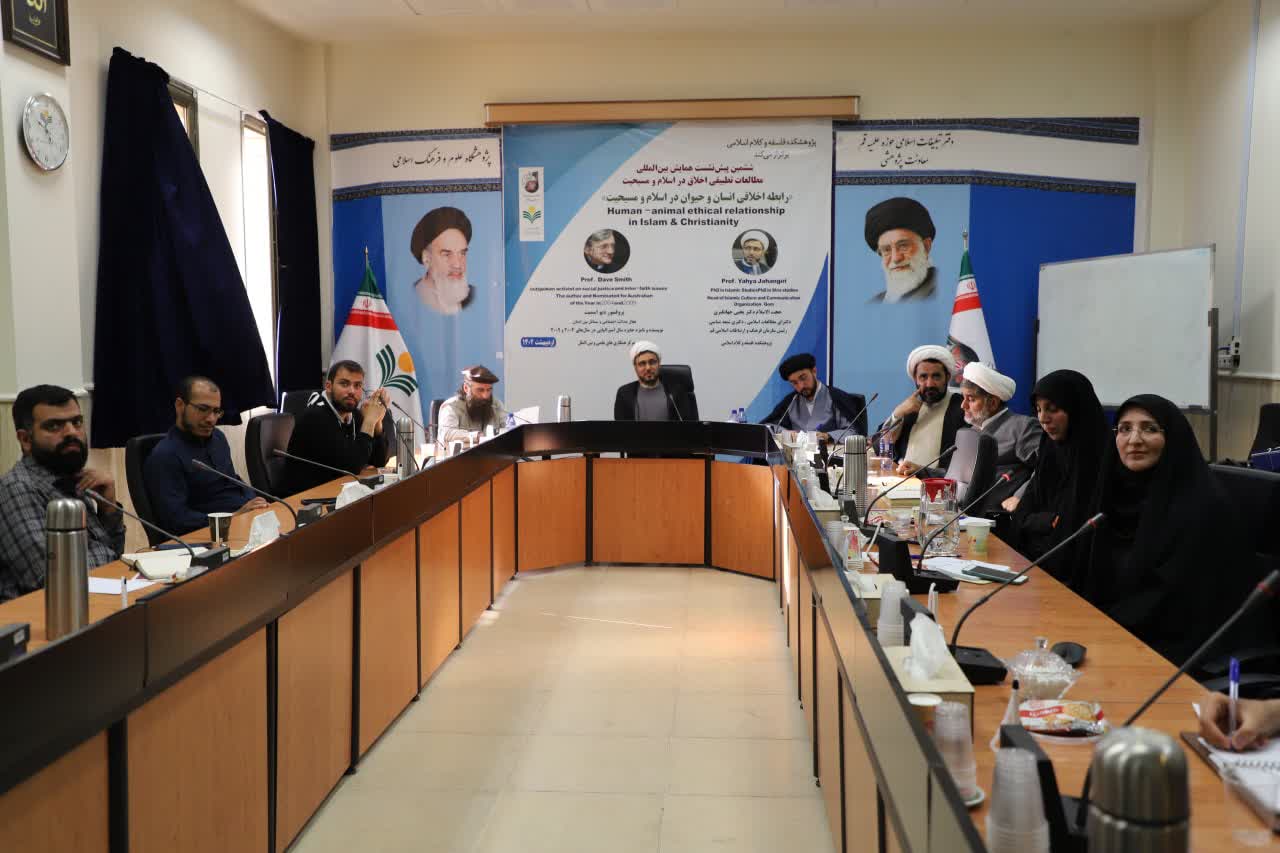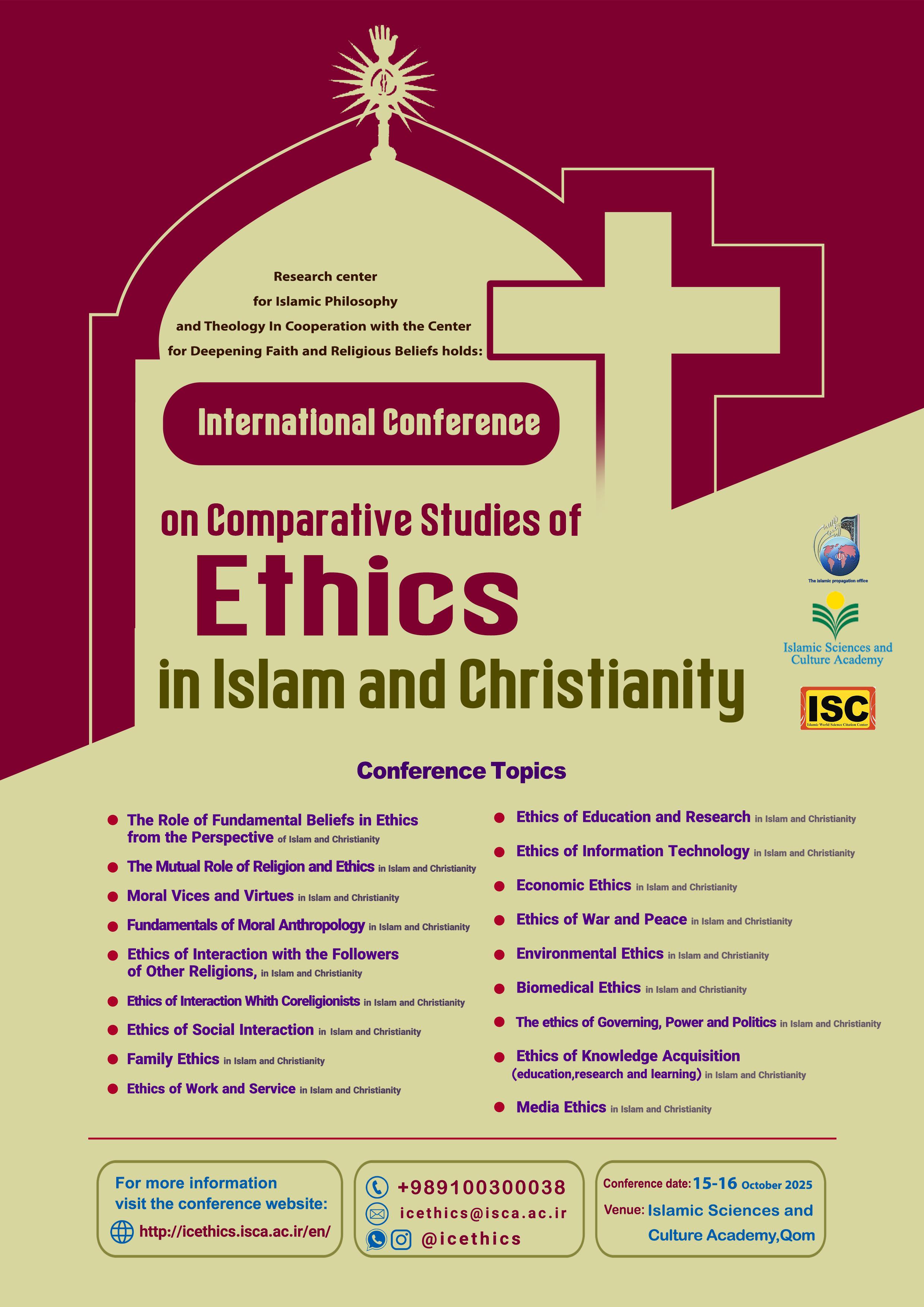Human-Animal Ethical Relationship in Islam and Christianity

Human-Animal Ethical Relationship in Islam and Christianity
The meeting was held on Monday, May 8, 2023 at Islamic Sciences and Culture Academy and it was organized by Research Center for Islamic Philosophy and Theology.
The lecturers of this meeting were:
Prof. Dave Smith, outspoken activist and inter-faith issues and the author and nominated for Australian of the Year in 2004 and 2009.
Prof. Yahya Jahangiri, holding PhD in Islamic Studies and PhD in Shia Studies and Head of Islamic Culture and Communication Organization, Qom, Iran
At the beginning, Professor Dave Smith, while thanking for holding such a meeting, said some points regarding the Christian opinion regarding the behavior and ethics of humans and animals.
He referred to the history and tradition of Christianity in relation to the type of interaction and duty of humans towards animals. They said that Christianity in ancient times believed that animals do not have perception and rationality and that their status is lower. The result of this view of Christianity was their wrong treatment of animals.
He further stated that this thought was later corrected by the efforts of some thinkers and they wrote books about it. For example, there was a book called Little flowers of San Frances that collected some of these stories.
At the end of his speech, he said that if we want to know the true opinion of Christianity about the behavior of humans and animals, we can refer to the book of Genesis - the Old Testament, which is the holy book of the Torah. At the beginning of this holy book, there is a chapter about creation. One of the important sentences in this chapter refers to a word from God that says, "And God said: Let us make man in our own image and likeness, and let them live on the fish of the sea and the birds of the sky and the four-footed animals and every creeping thing that creeps on the earth." And rule over the whole earth and over everyone..."
Then, Dr. Yahya Jahangiri presented his lecture and said that if we want to examine the opinion of Islam in relation to the treatment of animals, we must refer to the main Islamic sources, which include the Holy Quran, Hadiths and Islamic Sunnah.
The Qur'an: We have 200 verses about animals in the Quran. Six chapters and Surahs are named after an animal. 40 animals whose names are mentioned in the Quran. Therefore, we can see how important the book that was revealed for the guidance of man is to animals and mentions them.
There are verses in the Qur'an that advise humans to consider the creation and behavior of animals, such as:
"Don't they look at the camel how it was created?! (Ghashiya-17)
If we want to know Islam's opinion about interacting with animals, we can look at the most sacred duty of Muslims, which is in the holiest place, which is the duty of "Hajj". It is stated in the acts and orders of Hajj that not only you do not have the right to harass animals, but also if a harmful animal comes, you do not have the right to throw it away.
In addition, he referred to some of the hadiths about respecting the rights of animals. Imam Sadiq (peace be upon him) said, "If you raised an animal yourself, do not slaughter it yourself for eating; it is considered Makrouh, because when you raise it, it gets used to you, and it is not fair to kill that animal yourself. It is also narrated from the 14 Infallibles that they said, "Don't slap your animals and pets, and if you want to slap them, slap them on their backs."
At the end, the experts answered the questions of the participants.
This meeting was the sixth pre-meeting of the conference of Comparative Studies of Ethics in Islam and Christianity and the conference will be held in February this year. Researchers can present articles on ethics in Islam and Christianity.
